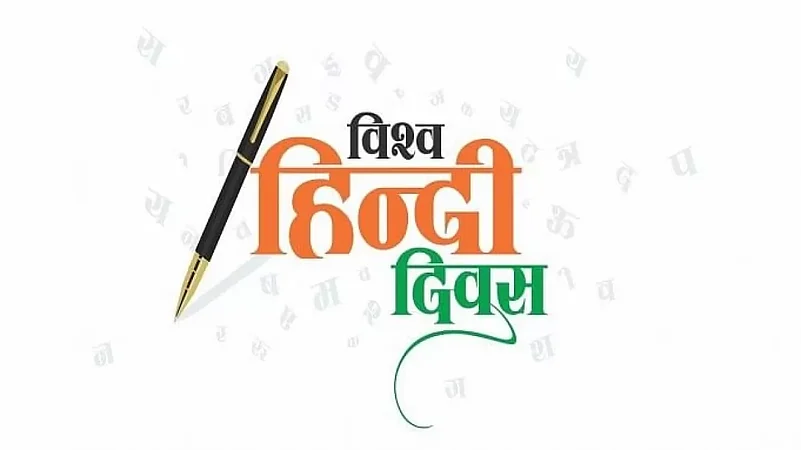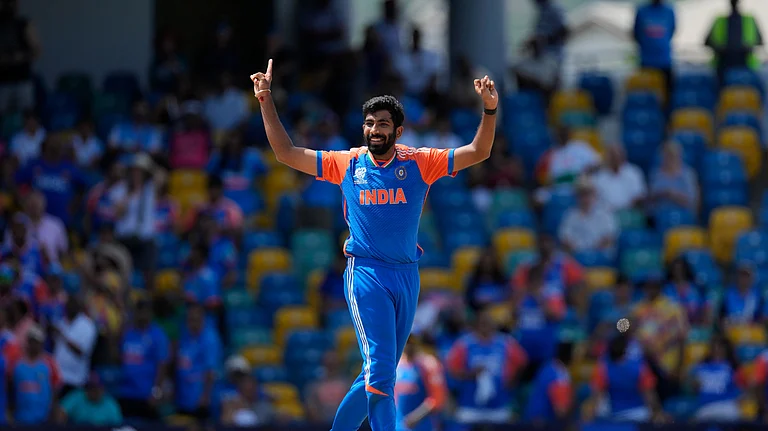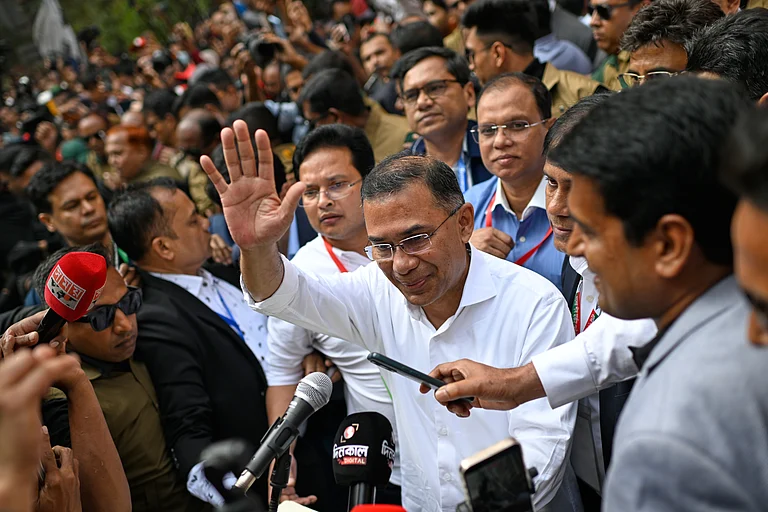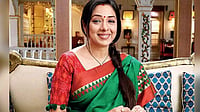People from all over the world are all set to enjoy the World Hindi Day tomorrow. This is a day when people share their love for the language of Hindi. To help more and more people realise the importance of the language and create awareness around its usage, this day is especially important.
From memorable anecdotes involving reading Hindi stories to enjoying the cultural significance of Hindi, celebrities talk about the importance of Hindi in their lives.
Khushdeep Bansal
I am originally from Rama, a small village in Punjab. I was exposed to Hindi language during my engineering days in Pune and instantly connected with this vibrant and culturally rich language. Hindi serves as a unifying force, connecting people across diverse regions, communities, and traditions. Beyond its practical utility, Hindi plays a pivotal role in preserving and promoting the cultural heritage of India. I continue to read a lot of Hindi literature and even teach my students in Hindi. In all the training programmes which MahaVastu coducts, Hindi is the primary language. I am very fond of authors and poets like Sant Tulsidas whose work speaks of brilliance in not just literature but also philosophical insights in the Ramayana. Another all time favorite is one of Dushyant Kumar’s most celebrated poems, "Ho Gayi Hai Peer Parvat Si," captures the spirit of resilience and determination in the face of adversity. The poem uses powerful metaphors to convey the challenges of life, emphasizing the strength required to overcome obstacles. Its verses have become anthems of hope, inspiring individuals to face life’s challenges with courage and fortitude. I am also a huge movie buff and watch a movie every week. Bollywood, the world’s largest film industry, predominantly uses Hindi as its primary language. I am a huge fan of dialogue writers such as Sh. Santosh Saroj who gave the superhit dialogue ‘Rishtey Mein to hum tumhare baap lagte hain’ from the movie Shahenshah to the latest ones such as Raj Kumar Hirani who made us all believe ‘All izz well’.
Somy Ali
I can speak Hindi because I can speak and read Urdu. Unfortunately, I can’t read Hindi. But Hindi and Urdu are quite similar unless you are debating a poet which pretty much never happens. Having moved to the US, at the age of 8, my mother continued speaking to me in Urdu so to this day I speak to my parents in Urdu and my father’s side is all from India hence, I speak to them in Hindi. I get stuck on certain words in both Hindi and Urdu when they use hardcore words in both languages, but given I get a lot of victims from South Asia, I manage my way around the dialects and languages. My favourite writer is and always has been Arundhati Roy and one of my favourite books of hers is The God of Small Things. I urge everyone to read that book. It’s beyond remarkable!
Yashashri Masurkar
I have been reading Hindi literature since childhood. I read Premchand, Harivanshrai Bachchan, Kavi Dinkar, and Mahadevi Verma in my childhood. I honestly have no idea of what’s happening in literature these days. I have still been exploring old poets. There’s so much to read. Currently, I’m reading Kaifi Azmi and Amrita Pritam.
Lokit Phulwani
Not only for me, but for a large number of Indians, Hindi holds immense cultural significance, serving as a unifying language across diverse regions. While not everyone speaks it as their first language, many Indians understand and communicate in Hindi due to its prevalence in media, education, and everyday interactions. Its importance varies by region, but it remains a key linguistic bond in the country. I don’t keep a regular update on what’s happening around Hindi literature but at the same time, Hindi is something which most of us have been close to since our childhood. One notable Hindi author whose works have left a profound impact on my life is Munshi Premchand. His stories, such as “Godan” and “Gaban,” delve deep into societal issues, human struggles, and the complexities of Indian society, resonating with readers across generations. His storytelling reflects the realities of life in a way that deeply touches the hearts of many.
Nivedita Basu
Hindi for us was always Prem Chand. We weren’t so close to Hindi earlier, but now after doing daily soaps, I have learnt a lot about it. I should give credit to Ekta. She introduced me to the life of Hindi again. I have made it a point that even though my kids study in an international school they have to talk in Hindi at home. I am not in touch with Hindi books right now. Probably two years down the line when my daughter will read, I’ll again get in touch with it. Of late, Hindi literature and Hindi books were only what my friends wrote and showed me. We go for poetry reading and story reading. In fact, on New Year’s eve, I was sitting with three poets who were reading out their poems in Hindi. So, it was quite amazing.
Rohit Choudhary
Hindi Diwas is also observed each year to stress the importance of Hindi and promote it amid the generation that is way too impressed with English. It is a way of reminding the youth about their roots. No matter where we reach and what we do, if we remain grounded and in sync with our roots, we stay unshakable. Each year, the day reminds us of our true identity and unites us with the people of our country. No matter, wherever we go our language, culture and values must stay intact and the day serves as a reminder of the same. Hindi Diwas is one such day that instils us with patriotic feelings. In today’s times, there is an inclination towards English which is understood as it is used across the world and is also one of the official languages of India. This day is a small effort to remind us that Hindi too is our official language and holds as much importance. Well, honestly, I used to read the famous “jatak katha” a lot in my younger years. Over the years my inclination towards reading declined. Munshi Prem Chand’s novels I have enjoyed reading.
Dr. Acharya Vinod Kumar Ojha
Observing World Hindi Day resonates with the essence of the language’s global reach and importance. In my childhood, I delved into diverse Hindi literary treasures, from folk tales to the poignant works of renowned authors like Munshi Premchand, Harivansh Rai Bachchan, and Ramdhari Singh ‘Dinkar’. These narratives not only enriched me with the depth of Hindi literature but also ingrained cultural values and varied perspectives. While my engagement with contemporary Hindi literature isn’t constant, I ardently explore celebrated writers and their impactful creations, occasionally discovering emerging voices. Munshi Premchand particularly left an indelible mark with his profound storytelling and keen societal insights, echoing relevance even today.



























